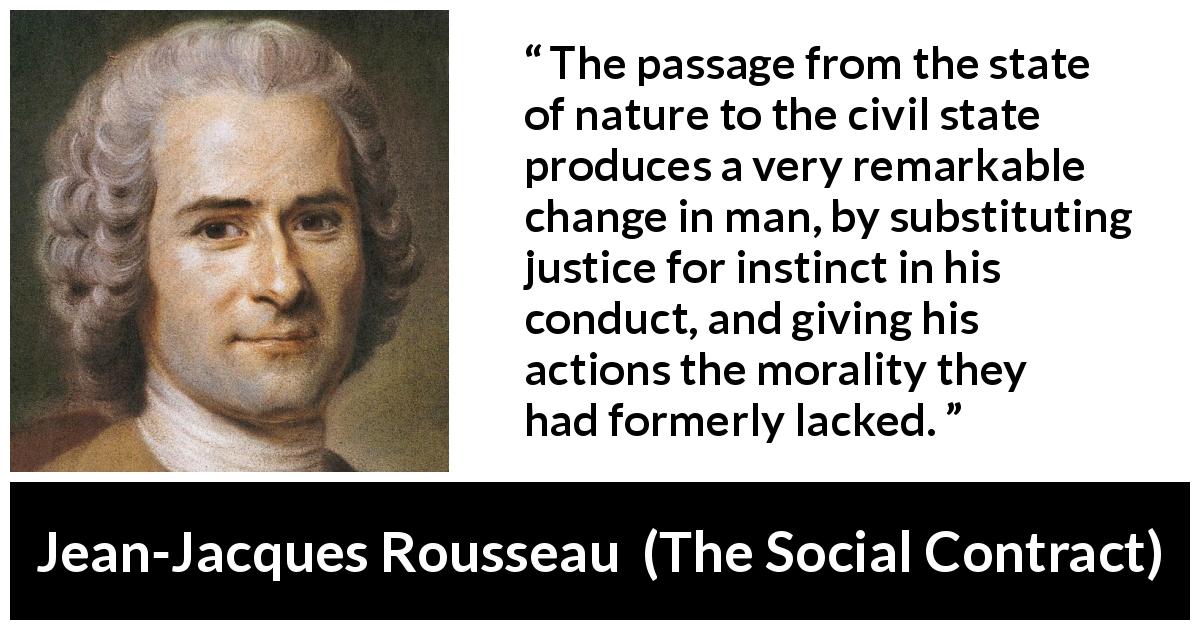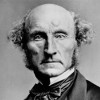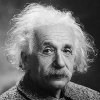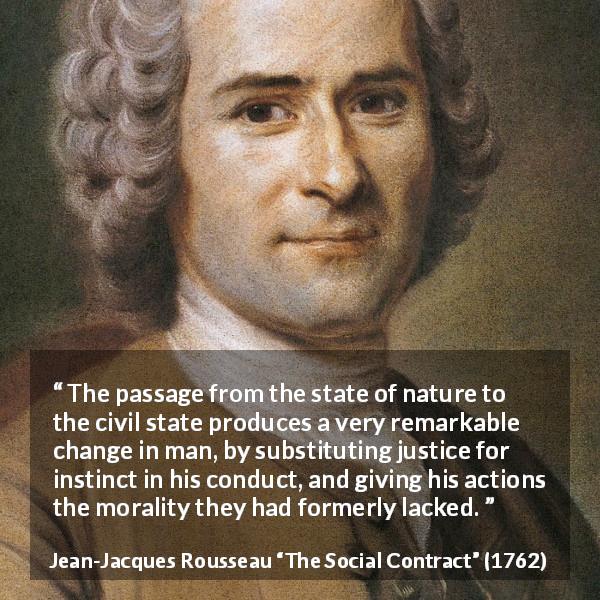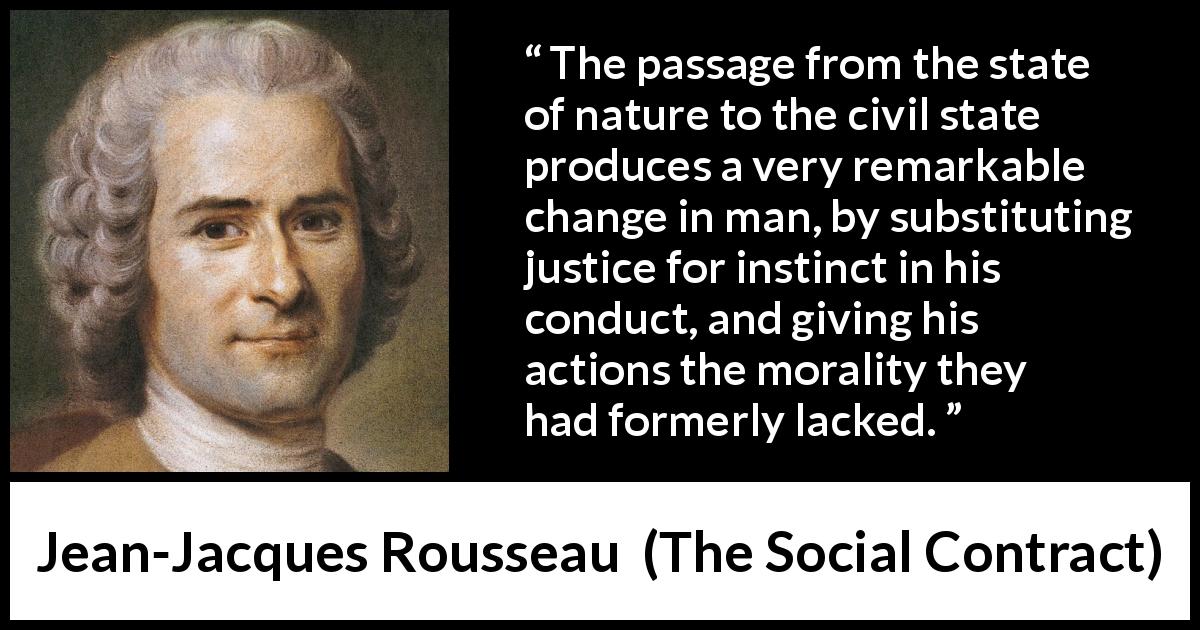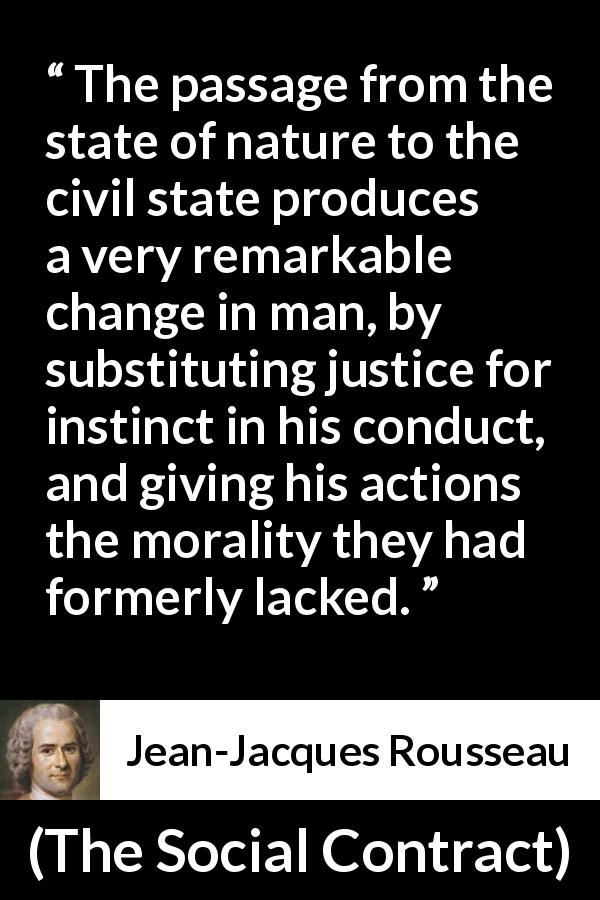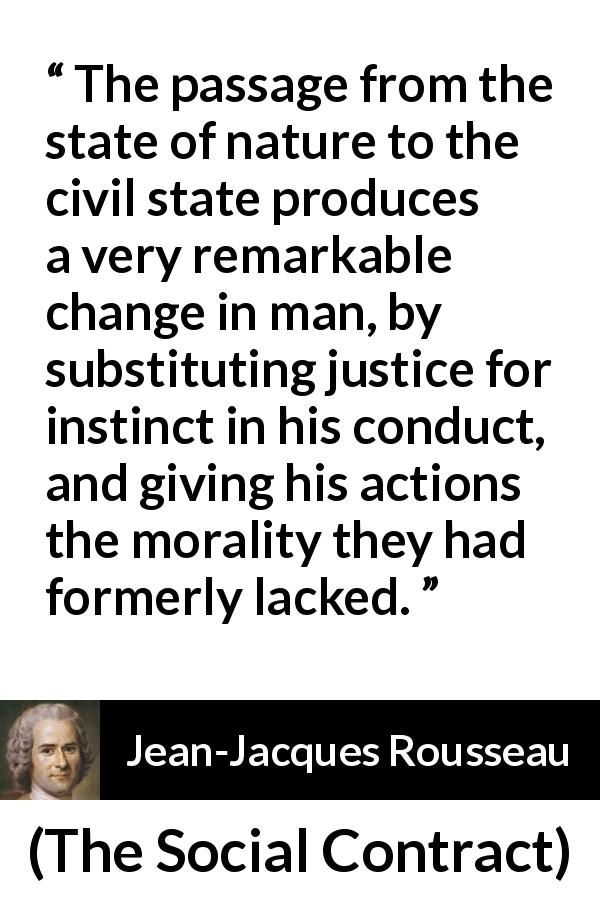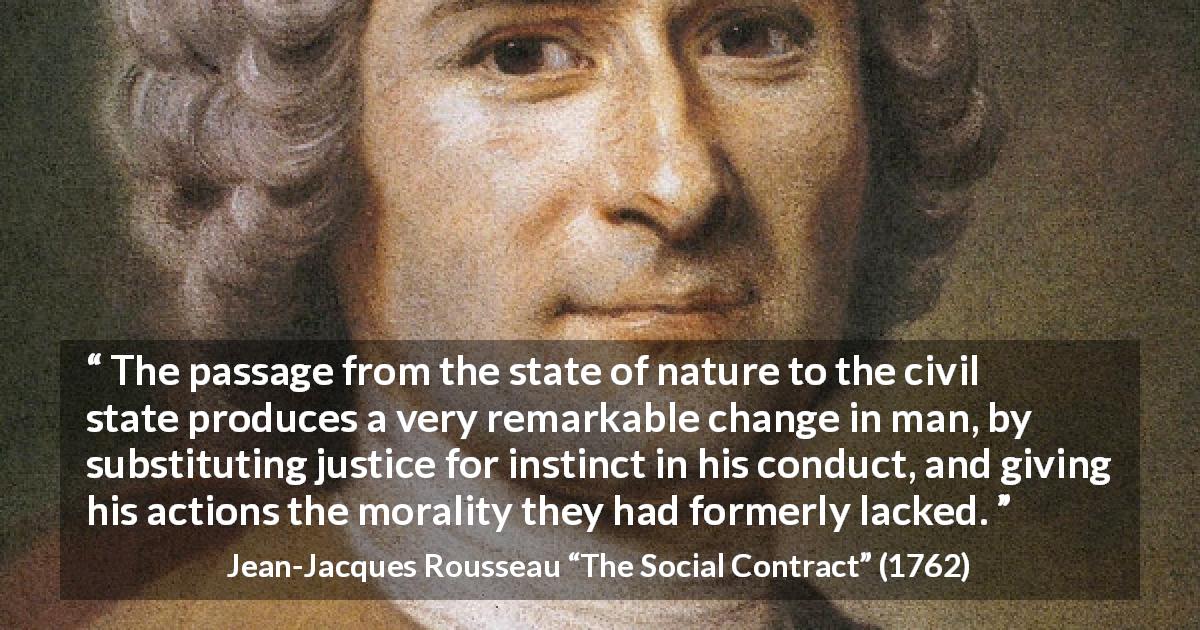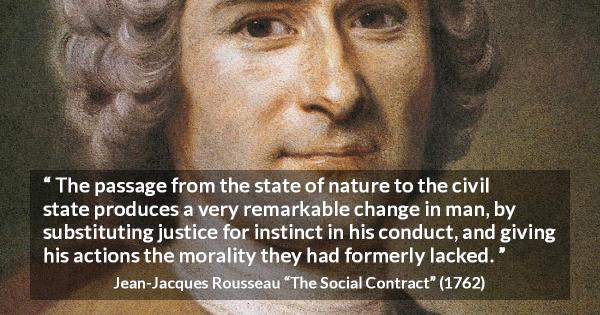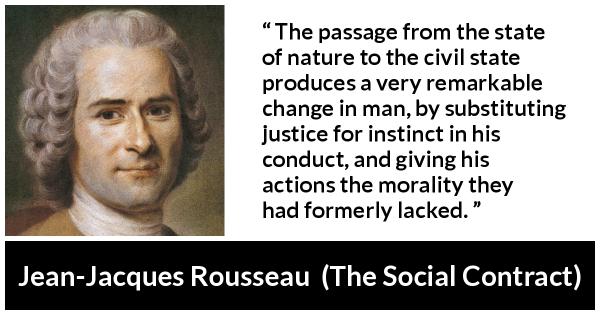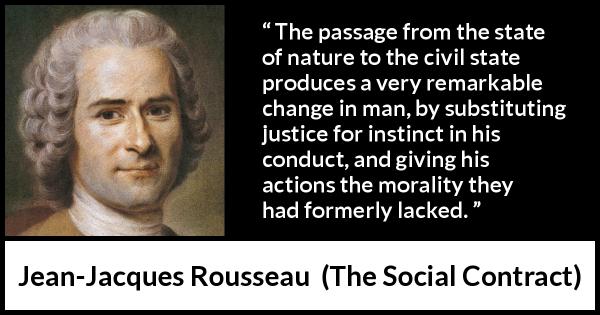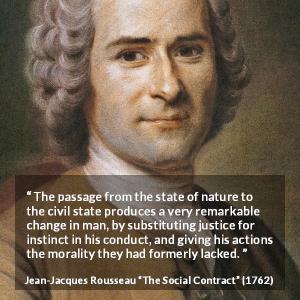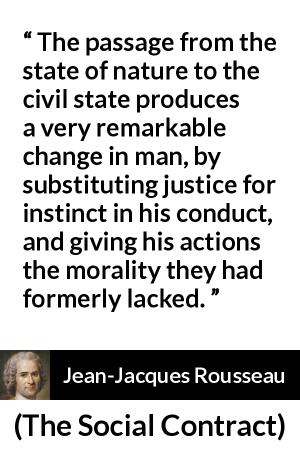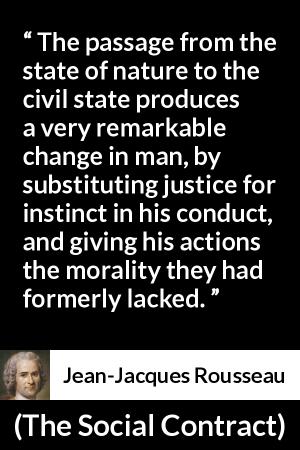“ The passage from the state of nature to the civil state produces a very remarkable change in man, by substituting justice for instinct in his conduct, and giving his actions the morality they had formerly lacked. ”
Jean-Jacques Rousseau, The Social Contract (1762). copy citation
| Author | Jean-Jacques Rousseau |
|---|---|
| Source | The Social Contract |
| Topic | justice nature civilization morality |
| Date | 1762 |
| Language | English |
| Reference | Of the Social Contract, or Principles of Political Law, Book I |
| Note | Translated by George Douglas Howard Cole |
| Weblink | https://en.wikisource.org/wiki/The_Social_Contract/Book_I |
Context
“In this lies the key to the working of the political machine; this alone legitimises civil undertakings, which, without it, would be absurd, tyrannical, and liable to the most frightful abuses.
8. The Civil State[edit]
THE passage from the state of nature to the civil state produces a very remarkable change in man, by substituting justice for instinct in his conduct, and giving his actions the morality they had formerly lacked. Then only, when the voice of duty takes the place of physical impulses and right of appetite, does man, who so far had considered only himself, find that he is forced to act on different principles, and to consult his reason before listening to his inclinations.” source
8. The Civil State[edit]
THE passage from the state of nature to the civil state produces a very remarkable change in man, by substituting justice for instinct in his conduct, and giving his actions the morality they had formerly lacked. Then only, when the voice of duty takes the place of physical impulses and right of appetite, does man, who so far had considered only himself, find that he is forced to act on different principles, and to consult his reason before listening to his inclinations.” source
